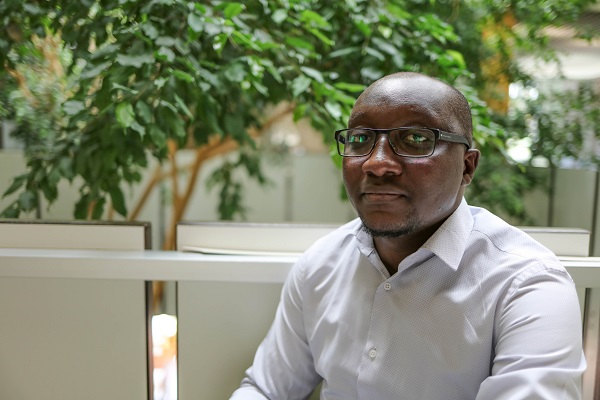 Prof. Tegawendé Bissyandé, project leader at SnT;
Credit: University of Luxembourg
Prof. Tegawendé Bissyandé, project leader at SnT;
Credit: University of Luxembourg
Three universities in Burkina Faso and Senegal will soon boast newly minted cybersecurity study programmes through a project initiated by the University of Luxembourg’s Interdisciplinary Centre for Security, Reliability and Trust (SnT) and supported by Luxembourg's Ministry of Foreign and European Affairs.
The project, titled LuxWays, will support a select number of Master’s students from participating universities in Burkina Faso and Senegal to join SnT in Luxembourg and earn PhDs in a variety of computer science disciplines, predominantly in cybersecurity. These students are then intended to return to their home institution with their PhD and become professors in their area of research. The academic cooperation in the framework of this project will be conducted with the University of Cheikh Anta Diop in Senegal and the University of Joseph Ki-Zerbo and the Virtual University in Burkina Faso.
With former students progressing to become professors, LuxWays is expected to create the manpower locally to carry out significant teaching activities in computer science disciplines. These will include a variety of cybersecurity topics, for example how security relates to FinTech systems or artificial intelligence (AI). Once the professors are teaching, each university is expected to be able to award up to 60 Master’s degrees every two years through their efforts. This will support the regional economy as the graduates will be able to fill skill gaps in local companies or create their own start-ups.
Studying cybersecurity in Luxembourg will benefit the original selection of PhD students in multiple ways. They will have their PhDs supervised by leading scientists at SnT and gain exposure to the greater ICT ecosystem of Luxembourg. The relationships they form here are expected to impact research in Luxembourg by injecting different contextual information. Bandwidth comes at a premium in West Africa, while at the same time mobile phone use for business-critical applications such as banking is more widespread than it is in Europe.
The Ministry of Foreign and European Affairs is supporting the project through their Digital4Development (D4D) portfolio within the Directorate for Development Cooperation and Humanitarian Affairs. The Development Cooperation has been leveraging digital tools and digitisation for more than a decade.
Franz Fayot, Minister for Development Cooperation and Humanitarian Affairs, commented: “We are very pleased to be working with SnT on a project that will create a lasting positive social and economic impact in our long-standing partner countries Senegal and Burkina Faso. Including capacity building and cybersecurity projects into our development cooperation activities is crucial to promote an enabling environment for digital tools that contribute to inclusive and sustainable growth. Especially the young generations can thereby seize economic opportunities and improve their livelihoods”.
Prof. Tegawendé Bissyandé, the project leader at SnT, added: “We need to train the trainers to create sustainable development. This project will create so many opportunities for young researchers who will now be able to study computer science at home, instead of only a select few leaving the country, as I did in order to follow my chosen research path”.
Prof. Björn Ottersten, Director of SnT, concluded: “Research has the ability to transform the economy of a region. We are delighted to partner with the Ministry contributing to the development in West Africa through research, doctoral education and innovations. This project will create a bridge of innovation between French-speaking West Africa and Luxembourg, strengthening the ties we already have and building momentum for the future”.








